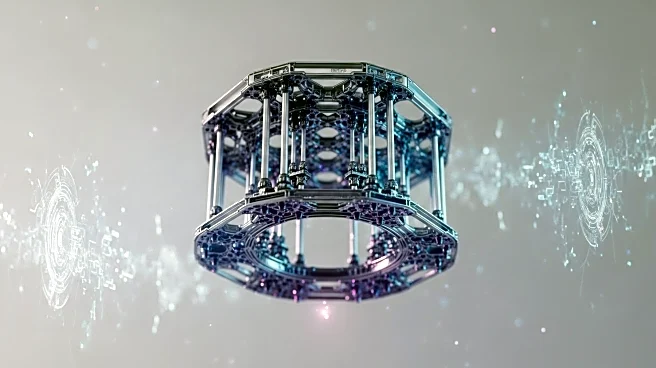What's Happening?
IonQ is making significant strides in quantum computing by developing a 3D-printing technique for miniaturized ion traps. This innovation, led by Hartmut Haeffner at the University of California, Berkeley, aims to facilitate the construction of larger quantum computers. Ion traps are crucial for confining ions and controlling their quantum states, which are essential for performing calculations. The new 3D-printed traps have demonstrated superior efficiency, capturing ions up to ten times more effectively than traditional designs. This advancement could overcome existing challenges such as complexity, high costs, and low reproducibility, paving the way for scalable quantum computing.
Why It's Important?
The development of 3D-printed ion traps is a pivotal step towards scalable quantum computing, which holds the potential to revolutionize industries by solving complex problems beyond the capabilities of classical computers. This technology could enhance fields such as cryptography, drug discovery, and materials science. By improving the efficiency and scalability of ion traps, IonQ is addressing key barriers to the widespread adoption of quantum computing, potentially positioning itself as a leader in the quantum technology sector.
What's Next?
The research team plans to integrate optical components, such as miniaturized lasers, into their 3D-printed designs to further advance quantum computing capabilities. This integration could lead to more innovative designs and applications, including improvements in mass spectrometry. As IonQ continues to refine its technology, it may attract increased interest and investment from industries seeking to leverage quantum computing for competitive advantage.









